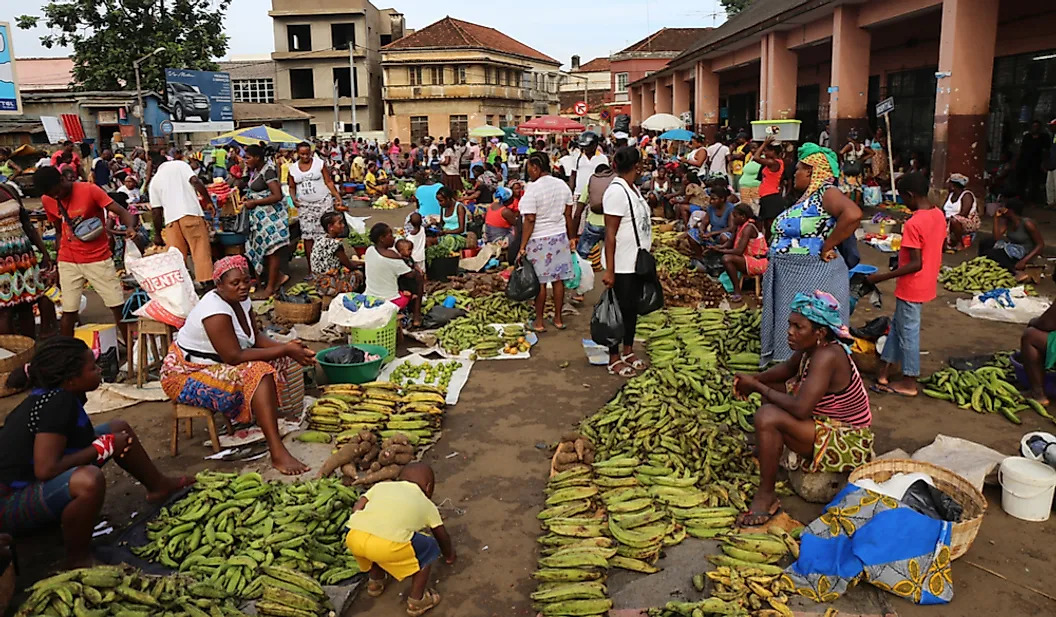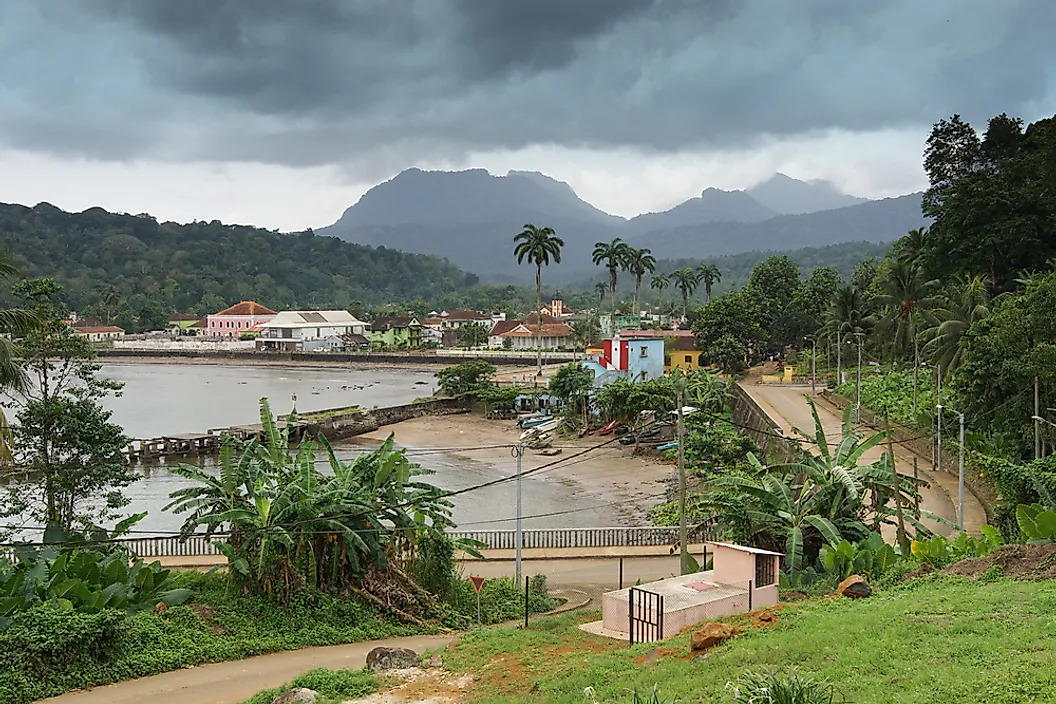By Osíris Fernandes de Jesus Costa*
Portuguese-speaking São Tomé and Príncipe (STP) face challenges typical to Small Island Developing States (SIDS) and affect their ability to deal with shocks.
These adverse events always generate significant budgetary imbalances and force the authorities to adopt fiscal restraint measures in the medium term, which penalizes growth and employment.
Furthermore, in the last 15 years, five important adverse events have been observed in the World, and the budgetary imbalances that coincided with this period led to an increase of more than 150% of the STP Government’s debt.
- The subprime crisis (July 2007 until approximately March 2009),
- Brexit (March 2017 until January 2020),
- A trade war between the USA and China (July 2018 to December 2019),
- The Covid-19 pandemic (from March 2020 onwards), and
- The ongoing political and military conflict between Russia and Ukraine (from February 2022 onwards).

The occurrence of these adverse external events, directly and indirectly, impacted the flow of external support to the country.
Recently, in 2016, despite China’s important return to the bilateral partners’ portfolio, external support fell by about 50% from that date to 2019, and, consequently, the economy recorded lower growth rates increasingly: 4.2% (2016), 3.8% (2017), 2.9% (2018), and 2.2% (2019).
However, when a strong “shake” to the national economy was expected in 2020 resulting from the Covid-19 pandemic crisis, considerable international financial (and material) responses determined the inflection of the behavior of donations.
Consequently, the increase in aggregate demand, supported essentially by the public sector, was the factor that best explained the 3.1% growth in real GDP in 2020, interrupting the pre-recession cycle that took place over the previous three years.
Nonetheless, it is important to highlight the asymmetric impact of the pandemic on the economy, which can hide the very serious effects of this crisis on some sectors of the economy.
For example, the recession in the hotel and restaurant sector severely penalized the Autonomous Region of Príncipe (RAP), where the economy is structurally focused on tourism.
It should be noted that the stability of governance recorded over the last eight years, which is a phenomenon that has never been seen before, also coincided with the deepening of the structural weaknesses of the national economy, a fact reflected in the change in the profile of the economy’s growth rates, which saw the average annual growth decrease from 4.5% (2010 to 2015) to 3.0% (2016 to 2021).
Likewise, prices showed a new evolutionary profile.
Between 2010 to 2015, inflation decelerated from 12.9% to 4.2%, a trend that showed an unequivocal convergence with prices in Portugal, clearly responding to the main objective of the anchor exchange.
However, from 2015 to the present, there has been an upward curve in the trajectory of inflation, reaching a range of between 7.5% to 9.5%, coinciding with a strong decline in the Agricultural and Livestock Sector.
Fisheries, which may indicate a worsening of structural problems on the domestic supply side, are the most important explanatory factor for price growth.
In terms of inflation, endogenous factors were exacerbated by exogenous factors.
Since September 2020, there has been a strong increase in global demand, with an impact on the increase in the price of international raw materials.
In the last quarter of 2021, there was an increase in the price of maritime transport freight to São Tomé and Príncipe, and here it is important to note that freight represents about 25% of the cost, insurance, and freight (CIF) of imports from the country.
This trend is accentuated by Russia’s invasion of Ukraine, with particular emphasis on the price of energy raw materials.

For example, Crude oil, in recent weeks, has fluctuated in a band of 110 to 101 dollars per barrel, a value fluctuation that has not been seen since the middle of 2012.
The temporal dimension of the uncertainties of the war and the public deficit aggravated in the pandemic period does not allow for easy fiscal answers regarding “imported inflation” for oil products, whose pricing is subject to administered management, and for consumer goods.
The effect of global inflation will certainly be transmitted directly to the population, with the penalty of losing control over public deficits and debts.
RECENT ADVERSE EXTERNAL FACTORS AND INTERNAL STRUCTURAL WEAKNESSES
During the last fifteen years, from 2007 to 2022, the author believes that some domestic economic decisions of significant importance for STP have been observed.
The first decision, in 2007, was the cancellation of a very significant portion of the country’s external responsibilities by multilateral partners, with the global public debt falling by more than half.
The second, in 2010, was adopting an exchange rate anchoring the Dobras to the Euro, which aimed to create conditions for nominal stability.
The third important internal event was associated with government stability between 2014 and 2022, which was essentially attributable to former President Evaristo de Carvalho.
The fourth and final decision concerns establishing diplomatic relations with the People’s Republic of China, a move expected to translate into the creation of vital infrastructure for unblocking the STP economy, through the construction of the port and the requalification of the international airport.
However, despite these decisions, which were expected to initiate a situation characterized by “fiscal spaces” for the promotion of investments leading to a structural transformation based on a framework of “nominal stability”, there was a concomitant succession of shocks to the global economy, that have already been itemized, that systematically limited the flow of external support and, consequently, saw a recurring pressure on public funding.
The budgetary imbalances observed between 2007 and 2020, a period characterized by successive shocks to external economies, coincided with an increase of more than 150% in STP government debt, with the aggravating factor of not being able to perceive structural changes in the economy that would guarantee nominal and fiscal stability in the long term.
CONCLUSION
The current situation should prioritize macroeconomic measures to protect the exchange rate anchor.
In this context, within the framework of short-term measures, it is necessary to correctly assess uncertainties in relation to the price of oil in two dimensions.
Firstly, global impact, related to public finances or shared with the economy’s private sector, and 2) global impact in the private sector.
As for consumer goods, as we are in a market economy, and putting aside fiscal instruments (such as indirect taxes and fees), there are no administrative instruments to restrain this increase.
However, considering the recent history of restricting revenues from external resources, it would be wise to maintain the current fiscal framework unchanged, otherwise, a possible decrease in revenues could have very negative effects on budget deficits.
Within the framework of long-term measures, it is important to prioritize domestic production in the primary sector as one of the essential vectors for containing risks to price stability.
The transition from artisanal to semi-industrial fishing is already a market requirement, resulting from the scarcity of fish in the exclusive economic zone (EEZ), reserved for artisanal fishing.
Furthermore, investments planned for the horticulture sector should translate into a more pronounced increase in production and the creation of storage and conservation structures.
* Osíris Fernandes de Jesus Costa (São Tomé e Príncipe) holds a Master’s degree in Monetary and Financial Economics from Instituto Superior de Ciências e Trabalho da Empresa (ISCTE-IUL) in Lisbon, Portugal, and postgraduate degrees in Banking, Insurance, and Financial Markets and in Business Management by from Instituto Superior de Línguas e Administração de Lisboa (ISLA), Portugal.
He was Executive Director and member of the Board of the Central Bank of São Tomé e Príncipe (BC-STP), and Professor of the Faculty of Science and Technology at the Public University of São Tomé e Príncipe.
Currently, he is a technical specialist at the Economic Studies Department of BC-STP and is responsible for preparing medium-term macroeconomic analyses and forecasts of the national economy.

